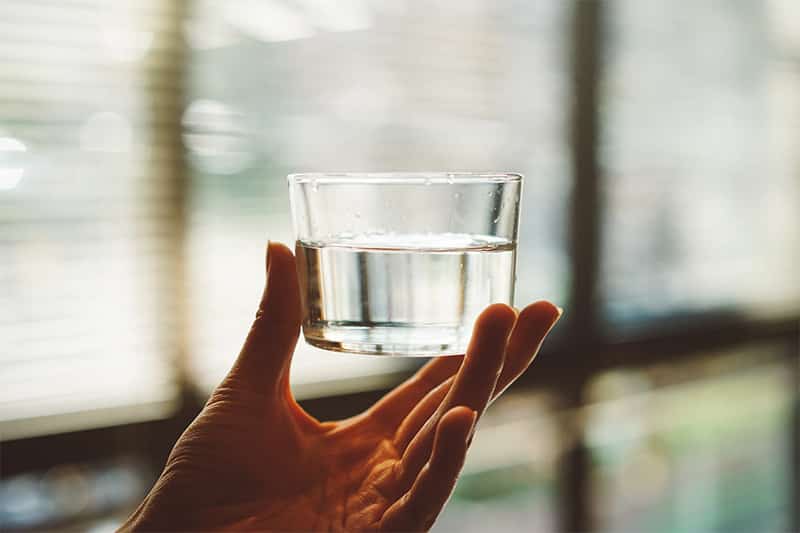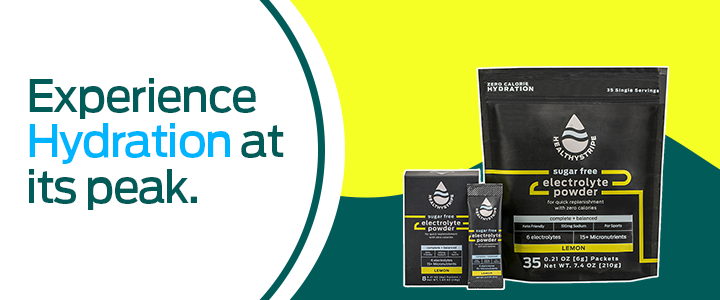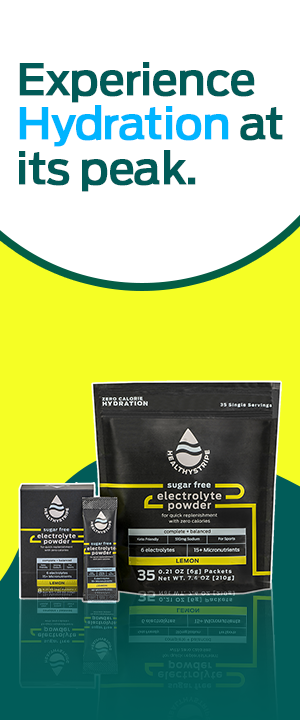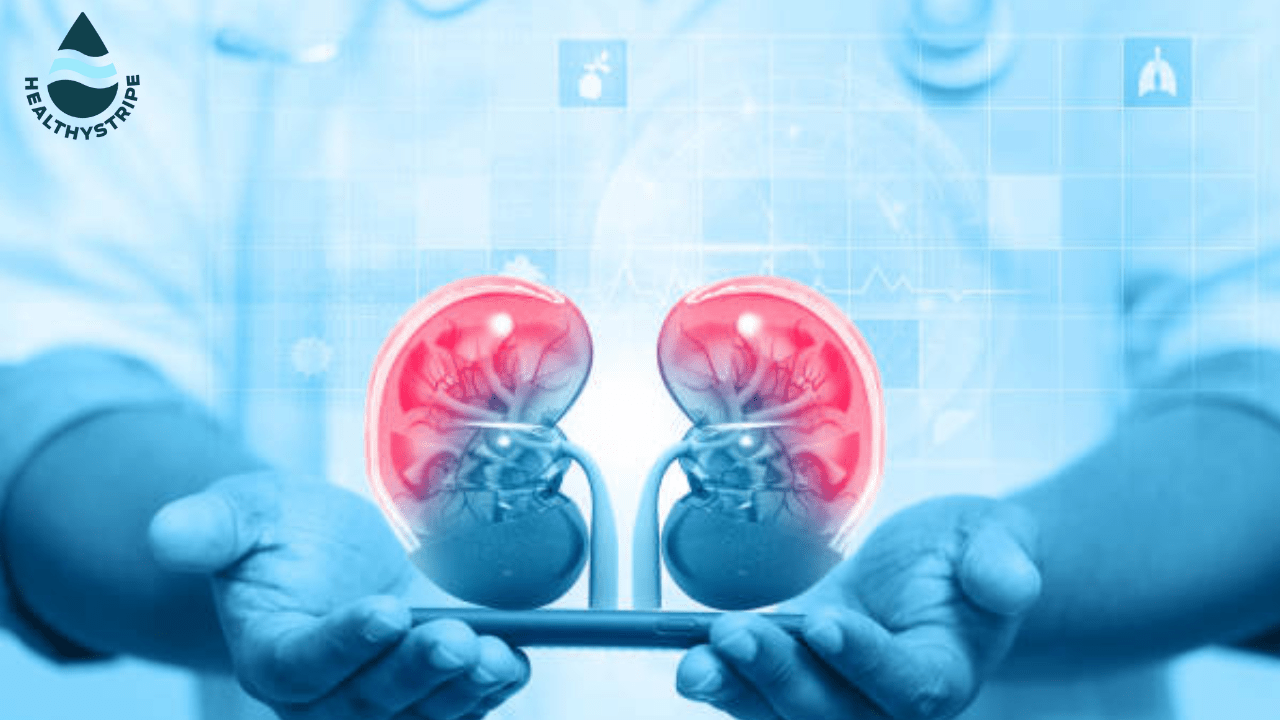Electrolytes for Fasting: How To Balance Electrolytes While Fasting
- What Are Electrolytes?
- Electrolytes And Fasting
- Does Fasting Deplete Electrolytes?
- Signs Of Electrolyte Imbalance During Fasting
- Why Does Fasting Deplete Electrolytes?
- How To Get Electrolytes While Fasting
- Recommended Mineral Intake Requirements While Fasting
- How To Treat Electrolyte Deficiency During Fasting?
- Precautions And Tips
- Takeaways
- What Are Electrolytes?
- Electrolytes And Fasting
- Does Fasting Deplete Electrolytes?
- Signs Of Electrolyte Imbalance During Fasting
- Why Does Fasting Deplete Electrolytes?
- How To Get Electrolytes While Fasting
- Recommended Mineral Intake Requirements While Fasting
- How To Treat Electrolyte Deficiency During Fasting?
- Precautions And Tips
- Takeaways

Fasting is a popular practice in many cultures and religions, and it can provide several health benefits.
Different types of fasting plans are evolving as a sure shot means to achieve weight loss. Alternate Day Fasting, Time Restricted Fasting, keto diet – the names may be different. The combined goal, though, is to address the piling pounds.
However, fasting may also lead to an electrolyte imbalance in the body.
With fasting and keto diets gaining so much popularity, a growing concern among the medical and fitness community is electrolyte depletion during fasting. Are these concerns well-placed?
It is important to understand how to get electrolytes while fasting and the role of electrolytes during fasting in maintaining proper balance.
What are Electrolytes?
Electrolytes are minerals that are essential for proper body function. These minerals are electrically charged, and they play a critical role in regulating nerve and muscle function, maintaining hydration levels, and balancing blood PH.
Maintaining a proper balance of electrolytes is important for overall health and may be achieved through a balanced diet and adequate hydration.
Electrolytes and Fasting
Electrolytes are minerals that are essential for proper body function, including regulating nerve and muscle function, maintaining hydration levels, and balancing blood PH. During fasting, the body is deprived of these minerals, which may lead to an electrolyte imbalance.
Does Fasting Deplete Electrolytes?
Yes, the process of fasting depletes your body of important electrolytes such as sodium, potassium, calcium, and magnesium. This is especially true in cases of prolonged fasting or in cases where you combine your fasting with workouts causing an increased electrolyte loss due to sweat.
When you fast, your insulin levels start going down. This causes your kidneys to expel increased levels of fluids and electrolytes. With a combined effect, you start experiencing electrolyte loss and different symptoms associated with it.
An excellent way to compensate for this electrolyte loss and ensure that your body does not suffer related symptoms is by supplementing your body with electrolytes in the form of a hydration drink. Healthystripe electrolyte powder is a great product for hydration. It not only contains the basic electrolytes but also has an extra boost of nutrients in the form of vitamins and minerals for excellent nutritional support when you are fasting.
Signs of Electrolyte Imbalance During Fasting
While fasting can have several benefits for the body, it may also lead to electrolyte imbalances if not done correctly. Here are some signs of electrolyte imbalance during fasting:
- Fatigue: An electrolyte imbalance may lead to fatigue, weakness, and lethargy. This is because electrolytes are needed for energy production in the body.
- Muscle Cramps: Electrolyte imbalances may cause muscle cramps, spasms, and twitches. This is because electrolytes play a key role in muscle function.
- Headaches: Low levels of electrolytes may cause headaches and migraines. This is because electrolytes help regulate blood flow and hydration levels in the body.
- Nausea and Vomiting: Electrolyte imbalances may result in nausea, vomiting, and stomach cramps. This is because electrolytes help regulate the digestive system.
- Irregular Heartbeat: It may lead to an irregular heartbeat, palpitations, and arrhythmias. This is because electrolytes help regulate heart function.
Why does Fasting deplete Electrolytes?
The process of fasting deprives your body of important nutrients since you do not have any intake during the fast.
Your body gets its electrolyte supply from the following sources:
- Your drinking water contains certain electrolytes depending on the source and purification process.
- Natural electrolyte drinks such as coconut water, fruit juices and smoothies are excellent sources of electrolytes.
- The food you consume is also rich in electrolytes. Fresh produce, whole grains, legumes, pulses, fruits, vegetables, milk and milk products are all different sources of mineral supply for your body.
- Electrolyte drinks, sports drinks, and energy drinks are also excellent and highly preferred sources of electrolytes and other nutrients.
When you are fasting, you are essentially depriving your body of this electrolyte supply. In the absence of food, your body depends on stored glycogen in your body. This glycogen binds with water molecules. In effect with the process of glycogen burnup, you are also losing bodily fluids.
Whether you are fasting or you are following a ketogenic diet, the principle is simple. You are forcing your body to burn stored fat to produce the energy needed for performing various activities.
In all the above weight loss programs, the key feature is reduced insulin levels. These low levels of insulin force your kidneys to flush out electrolytes mostly sodium.
While low insulin levels may be good for your weight loss, they are bad news for the maintenance of optimal electrolyte balance in your body. This means that your body fails to maintain the required levels of fluids, sodium, potassium, calcium, and magnesium.
How to Get Electrolytes while fasting
A question may come to your mind about whether can you drink electrolytes while fasting and can I drink electrolytes while intermittent fasting. Here are some ways to get electrolytes while fasting:
- Drink plenty of water: Drinking enough water is crucial to maintain electrolyte balance, as water helps distribute electrolytes throughout the body. Aim to drink at least 8-10 glasses of water per day, or more if you’re sweating heavily or exercising.
- Add electrolyte-rich foods to your diet: Certain foods are high in electrolytes, such as avocados, bananas, sweet potatoes, and yogurt. Incorporating these foods into your diet can help replenish your electrolyte levels.
- Use an electrolyte supplement: Electrolyte supplements come in various forms, such as powders, tablets, and drinks. These supplements typically contain a blend of various minerals.
- Drink coconut water: Coconut water is a natural source of electrolytes, as it contains potassium, magnesium, and calcium and is low in calories and sugar.
Recommended Mineral Intake Requirements while Fasting:
| Sodium | Fasting Headache
Weakness Lightheadedness Fatigue Inability to concentrate | 3-6 gms per day on fasting and keto.
Can be increased if experiencing keto flu |
| Potassium | Palpitation
Cramps Muscle Twitching | 3-4.7 gm |
| Magnesium | Cramps and Twitching post-exercise
Inability to sleep properly | 400 mg |
| Calcium | No visible symptoms | 1000 mg |
If you observe one or more of these signs, it is a clear indication that your fasting electrolytes are extremely low and it is time to up your fasting electrolytes game.
How to treat Electrolyte Deficiency during Fasting?
- Identify: The first step is to identify if you are experiencing any symptoms of electrolyte deficiency. Refer to the table above for symptoms and recommended daily allowances of each of these minerals.
- Compensate: If you are experiencing symptoms, you should up your diet to include permissible food items that compensate for the electrolyte loss. This may not always be possible due to the limitations of each of these diets.
- Supplement: In that case, you must add electrolyte supplements to your diet. But adding just electrolytes is not enough. Hydration is equally important. This is why we suggest electrolyte drinks. Keep sipping these drinks throughout the day till you feel better and feel the symptoms going away.
- Hydrate: Once you are back to normal in terms of symptoms, you can alternate between drinking water and electrolyte drinks. Green tea without added milk and sugar is another option to keep you hydrated if you are bored of sipping on water and electrolyte drinks.
With these steps, you will be able to ensure a proper fasting electrolyte supply and avoid getting sick and experiencing symptoms such as the keto flu.
Precautions and Tips
Here are some precautions and tips for getting electrolytes while fasting:
- Consider drinking low-sugar electrolyte drinks: If you’re having trouble getting enough electrolytes from food alone, you may want to consider drinking electrolytes while fasting from an electrolyte supplement or low-sugar sports drink.
- Eat nutrient-dense foods: When you do eat, focus on consuming nutrient-dense foods that are rich in electrolytes. Some good options include leafy greens, avocados, nuts, and seeds.
- Take electrolyte supplements: If you’re concerned about getting enough electrolytes, you may want to consider taking an electrolyte supplement.
- Be aware of symptoms of electrolyte imbalance: If you experience symptoms such as muscle cramps, headaches, or nausea, it could be a sign that your electrolyte levels are imbalanced. If these symptoms persist, be sure to speak with a healthcare professional.
Takeaways:
Electrolyte loss is a common problem you will face when restricting diet plans such as the fasting and keto diets. Especially when you are following these diet plans for the long term, compensating for this loss becomes crucial.
So, how to get electrolytes while fasting? Electrolyte drinks and other supplementing drinks such as water are an excellent option to keep you hydrated and ensure that your electrolyte levels are optimal.
Don’t worry about excess electrolyte levels, since your kidneys will eliminate them through urine. So, when planning to start a fasting diet for weight loss, start by planning for your fasting electrolytes!!
What are some signs of Electrolyte imbalance during Fasting?
Some signs of electrolyte imbalance during fasting include fatigue, muscle cramps, headaches, nausea, vomiting, and irregular heartbeat. It is important to stay hydrated and consume electrolyte-rich fluids during fasting to prevent these symptoms.
What are the most important electrolytes for the body?
The most important electrolytes for the body include sodium, potassium, calcium, magnesium, and chloride. These minerals are essential for proper body function, including regulating nerve and muscle function, maintaining hydration levels, and balancing blood PH.
How much water should I drink during fasting to maintain electrolyte balance?
It varies depending on the individual and the type of fasting. It is generally recommended to drink at least 8-10 Glasses Of Water per day, along with electrolyte-rich fluids, to prevent dehydration and electrolyte imbalances.
Can I consume electrolyte supplements while fasting?
It is generally safe to consume electrolyte supplements during fasting to maintain electrolyte balance. Consult a healthcare professional if you have any underlying health conditions or are taking medications.
What are some natural sources of electrolytes?
Some natural sources of electrolytes include fruits (such as Bananas and avocados), vegetables (such as spinach and broccoli), nuts and seeds (such as almonds and chia seeds), and fluids (such as water, Coconut Water, and bone broth).
How do I know if I am getting enough electrolytes while fasting?
You can know if you are getting enough by paying attention to your body and monitoring for signs of electrolyte imbalance such as fatigue, Muscle Cramps, headaches, Nausea, Vomiting, and irregular heartbeat.
Can I consume sports drinks during fasting to replenish electrolytes?
It is generally safe to consume sports drinks during fasting to replenish electrolytes. However, it is important to choose a low-sugar option and to consult with a healthcare professional before consuming sports drinks or other supplements during fasting.









